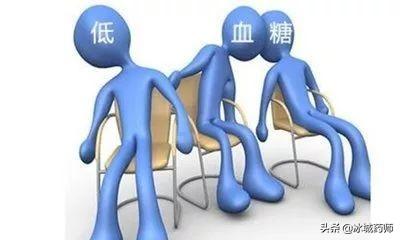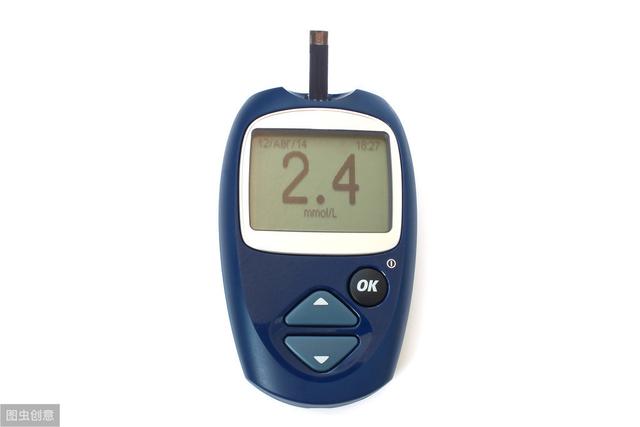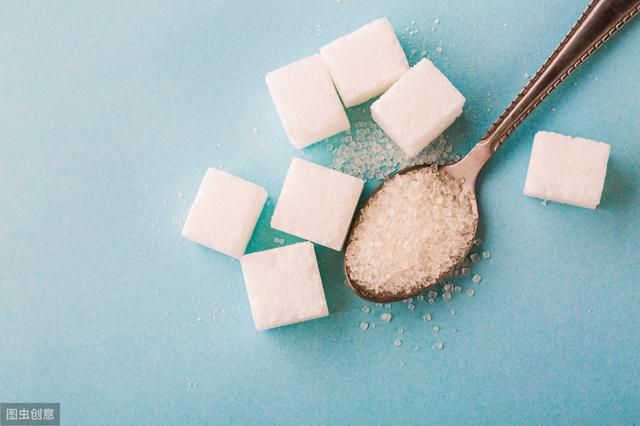What about hypoglycemia after medication for type 2 diabetes?
Hypoglycemia is a frequent adverse reaction in diabetic patients. Hypoglycemia can occur with after strenuous exercise, during hunger, overdose of insulin and other medications, etc. So what should you do after hypoglycemia occurs?
I. Identify the cause of hypoglycemia to avoid recurrence of hypoglycemia:
1, can cause hypoglycemic hypoglycemic drugs: mainly refers to stimulate insulin secretion of several types of drugs, insulin, sulfonylureas such as glimepiride, gliclazide, etc., and insulin sensitizer, rosiglitazone, pioglitazone and so on. The application of these drugs alone can easily cause hypoglycemia, especially when the dose is too large, so if you apply these drugs to pay attention to whether the dose of the drug is too large, according to the monitoring of blood glucose, to find a doctor to make appropriate adjustments, you can avoid hypoglycemia.
2、Switching to drugs that do not cause hypoglycemia when applied alone: such as various new hypoglycemic drugs, GLP-1 receptor agonists exenatide and liraglutide; and dagliflozin, engelecitabine, selegiline, and ligliptin, etc. These drugs do not cause hypoglycemia when applied alone.
3, drinking alcohol on an empty stomach can also cause hypoglycemia.
4. Increased exercise.
5. Glucose-lowering target control is too high, the dose of glucose-lowering drugs is too large, and the drug treatment program should be readjusted.
Second, how to treat low blood sugar
If you feel weak, rapid heartbeat, sweating, hunger, etc., you need to monitor your blood glucose immediately. If your blood glucose is lower than 3.9 mmol/L, take glucose or food containing sugar, such as chocolate and fruit candies, etc., and then measure your blood glucose after 15 minutes, and if it is still low, continue to take it, and know that your blood glucose value is greater than 3.9.
In short, it is important to be aware of hypoglycemia, which can be far more damaging than hyperglycemia and can be life-threatening in severe cases.

Hypoglycemia is defined as blood glucose ≤ 2.8 mmol/L in the general population, whereas diabetic patients with blood glucose ≤ 3.9 mmol/L are defined as hypoglycemic. For diabetic patients, glucose-lowering therapy is a double-edged sword, there is a possibility of hypoglycemic events, a severe hypoglycemia may offset the benefits of several years of blood glucose compliance, and many repeated hypoglycemic episodes can cause memory loss, mental retardation, slow response, dementia, serious coma, and even life-threatening, so for diabetic patients must pay attention to the seriousness of hypoglycemia So for diabetic patients must pay attention to the seriousness of hypoglycemia.
In the treatment of type 2 diabetes, hypoglycemia often occurs with improper use of sulfonylurea hypoglycemic agents, and is especially likely to occur in the elderly.Hypoglycemia may occur due to malnutrition, hepatic or renal insufficiency, the use of other drugs (sulfonamides, salicylates, etc.) that may enhance the hypoglycemic effect of sulfonylureas, or the combination of sulfonylureas with other hypoglycemic drugs (insulin, dipeptidyl peptidase-4, etc.). In addition, we should also consider hypoglycemia caused by not eating, drinking or exercising too much after taking the medication.
For patients who have hypoglycemia, the first thing is to supplement glucose in time, like appropriate oral glucose water, fruit juice, sugar cubes, etc., and serious need for intravenous supplementation therapy; second, adjust the medication, you can reduce the amount of medication, and less sulfonylurea glucose-lowering drugs, and for the elderly, patients with a long course of the disease as much as possible do not need to use or be careful to use the medium- and long-acting glucose-lowering drugs. At the same time, it is also necessary to eat regularly and exercise appropriately.
Type 2 diabetes mellitus after diet and exercise treatment, blood glucose still can not reach the target blood glucose, it is necessary to apply hypoglycemic drugs to assist in lowering sugar.
There are currently eight major categories of hypoglycemic drugs, such asDrugs such as biguanides, insulinotropic agents, thiazolidinediones, glucosidase inhibitors, insulin, DDP-4 inhibitors, GLP-1 receptor agonists, and SGLT-2 inhibitors.
Some of these medications will cause hypoglycemia and some will not. Some medications do not occur when used alone and may occur when used in combination.

In clinical treatment, the occurrence of hypoglycemia is almost inevitable, and it is important to monitor blood glucose and adjust the treatment plan at any time to prevent severe hypoglycemia from occurring. This is something that requires close attention during diabetes treatment. This is because severe hypoglycemia may offset the benefits of good long-term glycemic control.
In the process of applying hypoglycemic drugs to lower sugar, diabetic friends should develop good habits ofCarrying sugary foods with youThis is to prevent the discomfort that occurs when hypoglycemia cannot be corrected in time and to prevent adverse consequences such as the induction of cardiovascular and cerebrovascular strokes.
If more obvious symptoms of hypoglycemia such as panic, sweating, dizziness, and hand tremors occur, check your blood glucose in a timely manner when you are in a position to do so, and eat sugary foods when your blood glucose is low.

Patients without symptoms of hypoglycemia do not rule out the possibility of hypoglycemia, it is best to have regular pre-meal, post-meal, and bedtime blood glucose, to detect the trend of blood glucose changes in a timely manner, and adjust the treatment plan as early as possible, to prevent blood glucose from being too low, and hypoglycemia occurs.
If hypoglycemia is clear, deal withFollow the 15-15 principleThis means taking in 15g of glucose or 200ml of sugary food such as fruit juice, waiting 15 minutes to see if the symptoms improve, and taking a blood glucose test, and repeating the above steps if the hypoglycemia is corrected, or calling for a doctor's help.

After the hypoglycemia is corrected, it is important to carefully reflect on the cause of your hypoglycemia, whether it is eating too little, too late in the day, too much medication, too much activity, whether the medication is being used incorrectly, and so on, which may occur, and communicate these possibilities to the supervising physician to adjust the treatment plan.
I'm Dr. Sun, pay attention to Dr. Sun talk about sugar, continue to learn more quality health knowledge, help please like, have questions please leave a message, attention will be replied!
What about hypoglycemia after medication for type 2 diabetes?
Whether in the daily life of diabetic patients, or in the diabetic weibo group, qq group, high blood sugar, how to lower sugar has almost become the center of the conversation, but diabetic patients are not only high blood sugar, sometimes there is also a problem of low blood glucose, and hypoglycemia will be manifested in the form of weakness, panic and many other symptoms, and in severe cases, there will be a sense of near death.
The core problem of diabetes is a disorder of sugar metabolism, where the body does not absorb and utilize sugar properly, resulting in a lot of sugar in the blood and corrupting the blood vessels and organs, while there is no sugar in the cells of the body and no source of energy, resulting in the person's weakness. At the same time there is even less excess metabolized sugar stored in the liver or muscles. Blood sugar is high, and the sugar is eliminated from the body through exercise and medication, etc. If too much is eliminated, hypoglycemia occurs, and at the same time, because there is no stored sugar, eating late will be a meal, and eating less will cause hypoglycemia, so many diabetic patients feel that controlling their blood glucose is too difficult, and think that other people don't understand him.
In fact, this method of controlling blood sugar is very stupid, do not see the essence of diabetes, lowering blood sugar is only a symptomatic method, to see the principle of the lack of cellular sugar and the harm, which is the greatest harm of diabetes, regulating diabetes, is to solve the contradiction between the cells do not have sugar and the blood sugar, the key to solving the contradiction is the liver, the liver is the largest metabolic organ of the human body, is responsible for the metabolism of sugar, the use of, and the storage of, the liver is the largest metabolic organ, responsible for the metabolism of sugar, the use of, and the storage of. Many of our daily habits, the environment, will cause damage to the liver. At the same time, we should see that the lack of vitamins and minerals in the food nowadays is relatively serious, and these vitamins and minerals are the catalysts for the completion of many chemical reactions.
The first step is to find the cause of hypoglycemia, for people with diabetes. Common causes of hypoglycemia are:
1. How much to eat;
2. Excessive exercise;
3. Failure to eat in time after taking hypoglycemic drugs.'
4. Took an overdose of hypoglycemic drugs;
5. Drinking alcohol on an empty stomach;
6. The production of insulin antibodies in patients using insulin can also cause hypoglycemia;
In view of the different causes of hypoglycemia, only by clarifying the causes can the occurrence of hypoglycemia be effectively prevented. ① Inappropriate treatment plan: the drugs that can cause hypoglycemia, such as insulin promoter dosage is too large, it is often difficult for patients to judge themselves, and need clinicians to carry out professional diagnosis and guidance; if the phenomenon of hypoglycemia occurs again and again, it should be timely consultation. ② Irregular eating. Most of the glucose-lowering treatment programs require patients to eat regularly, and hypoglycemia may occur if they do not follow the prescribed diet. Exercise: Different diabetic patients have different effects on lowering sugar, if hypoglycemia is caused by too much exercise, the next exercise should reduce the amount of exercise and appropriately increase the intake of starch-containing and sugar-containing food before exercise. ④ Drinking alcohol. Drinking alcohol may also lead to hypoglycemia, so be careful if you drink alcohol.
Diabetics should keep one thing in mind: keep sugary or starchy foods handy during treatment with hypoglycemic medications and eat them as soon as hypoglycemia occurs.
When hypoglycemia occurs, people with diabetes should not overstress. When possible, monitor blood glucose with an oximeter and take immediate measures to raise blood glucose. If it is only sweating, panic, fatigue and hunger, such as feeling lucid, to eat some sugary food. If hypoglycemia is caused by taking alpha glucosidase inhibitors, such as acarbose, glucose should be replenished immediately, and eating food is less effective. If there is a serious situation such as loss of will to send to the hospital immediately.
Do not let your guard down after the hypoglycemia has been corrected; this is only a stopgap measure; the most important thing is to analyze the cause and adjust the medication regimen.
Good life from the beginning of health, the beginning of health, health science professional media!
Hypoglycemia may also occur after medication for type 2 diabetes, the
1) Less severe symptoms
Self-medication with sugar water and eating foods high in sugar may provide relief on its own;
2) More severe symptoms
If a severe hypoglycemic reaction such as coma or impaired consciousness occurs, then you should immediately go to the emergency department of the hospital, and the doctor will give treatment such as intravenous sugar and water supplementation and maintenance of vital signs.
First analyze whether it is caused by an incorrect dose of oral medication, an overdose of insulin injection, or a disorder in the timing of the medication.
For mild hypoglycemia, you can take fruit juice or sugar water by mouth for relief.
Rush to the hospital for severe hypoglycemic coma.
At the same time, it is recommended to monitor blood glucose correctly and in a timely manner, to manage the dietary program and exercise program, and to adjust the medication reasonably under the advice and recommendations of the doctor.
Hello, I don't know your specific situation. Generally, hypoglycemia is characterized by dizziness, nausea, sweating and other symptoms. According to your description, if dizziness occurs after taking hypoglycemic drugs, and if the diagnosis of hypoglycemia is confirmed, it is possible that it is due to the low amount of staple food or the high consumption of activity, you can drink some sugar water, eat sugar cubes, cookies, chocolates and other foods with high sugar content to alleviate the symptoms. You should eat regularly, and eat a regular amount of staple food at each meal, and increase the amount of staple food if you have a lot of exercise and exertion. If necessary, go to the hospital, find a doctor to adjust the dose of medication, I hope it can help you.
Learn from me and stop taking your meds. Find a way to live from your diet!
The usual solution is to be able to take a hot pill right away, and basically recover very quickly, yo~!
So diabetic patients can best load some candy on the body yo, I am a have more than 8 years of 2 line diabetic, before also because of the medication appeared 2 times hypoglycemic reaction, are immediately ate a candy, and then it is best to stop all the things on the hands of the meditate for a while ~ I hope that my answer can help you it ~
My profession is a teacher, this year has been at home to the students on the live class, basically sitting, blood sugar control than last year is much worse, this morning's fasting blood glucose have gone to 8.5, the last few days the lowest is last night's postprandial blood glucose reached 7.3, but also let me happy a, I do not know the sugar friends your recent blood glucose situation have gone to how much?
Anyway, we must remember that diabetics should always carry a few candies with them.
This question and answer are from the site users, does not represent the position of the site, such as infringement, please contact the administrator to delete.